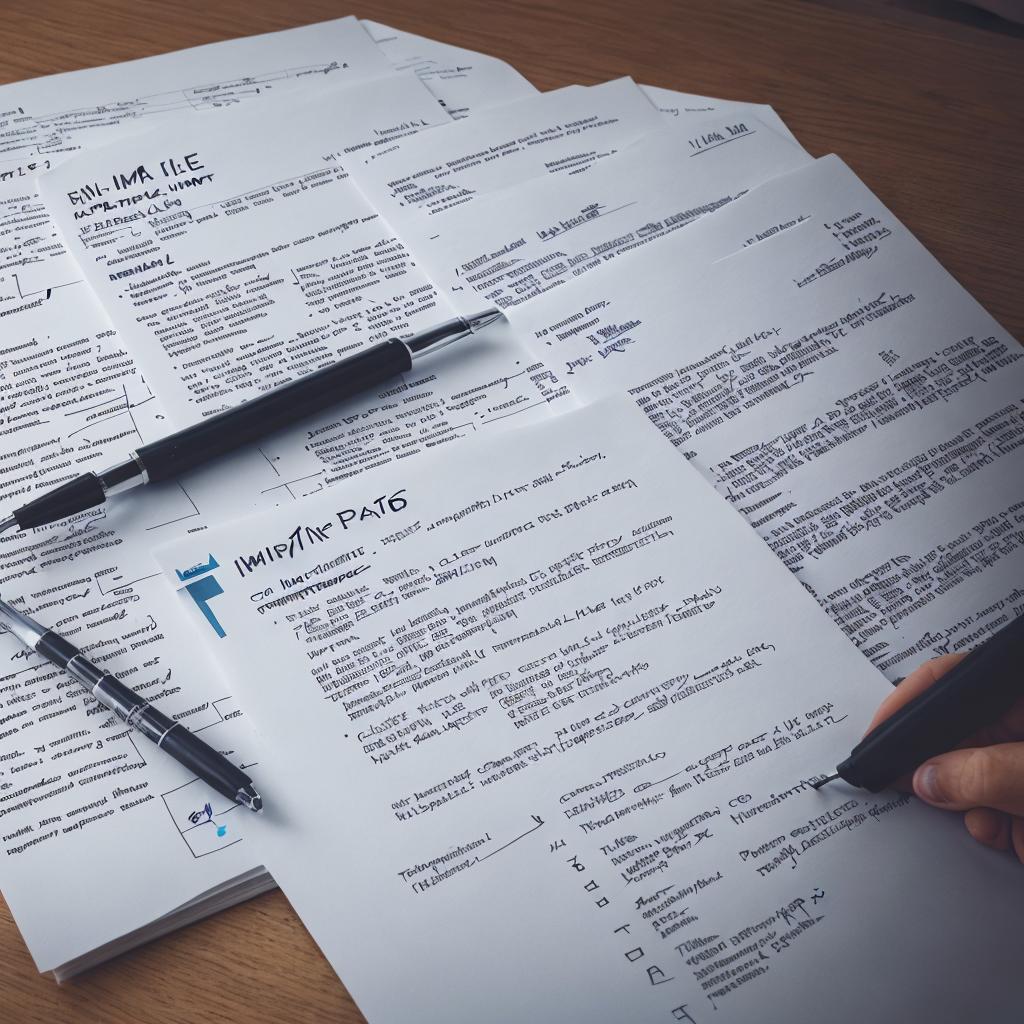What Common Errors Plague Health Insurance Applications?

Are you applying for health insurance? Watch out for common errors that could derail your application.
Missing or incomplete personal information, inaccurate reporting of medical history, failure to disclose pre-existing conditions, incorrectly calculated income or household size, and lack of proper documentation or proof of eligibility are just a few examples.
These mistakes can lead to delays, denials, or even higher premiums. Stay informed and avoid these pitfalls to ensure a smooth insurance application process.
Key Takeaways
- Missing or incomplete personal information can cause delays or denial of coverage.
- Inaccurate reporting of medical history can lead to denied claims or policy cancellation.
- Failure to disclose pre-existing conditions can result in legal ramifications and future coverage difficulties.
- Incorrectly calculated income or household size can impact eligibility for subsidies and type of coverage.
Missing or Incomplete Personal Information
You should always provide all of the required personal information when filling out your health insurance application. This is crucial because missing or incomplete personal information can lead to delays in the processing of your application or even a denial of coverage.
When filling out your application, make sure to include your full name, date of birth, address, phone number, and email address. Additionally, you’ll need to provide your social security number, employment information, and any other relevant personal details. It’s important to double-check all the information you provide to ensure accuracy.
Leaving out any required information or providing incorrect details can result in your application being flagged for further review, causing unnecessary delays in the approval process. Moreover, providing complete and accurate personal information is essential for the insurance company to accurately assess your eligibility and determine the appropriate coverage options for you.
Inaccurate Reporting of Medical History
Providing inaccurate medical history or omitting important details can have serious consequences when applying for health insurance. Insurance companies rely on accurate medical information to assess risk and determine the appropriate coverage and premiums for an individual. Failing to disclose pre-existing conditions or misrepresenting your medical history can result in denied claims or even policy cancellation.
To illustrate the importance of accurate reporting, let’s take a look at the following table:
| Medical Condition | Reported Accurately | Inaccurate Reporting |
|---|---|---|
| Asthma | Covered | Denied coverage |
| Heart disease | Premium increase | Policy cancellation |
| Diabetes | Covered | Denied claims |
| Cancer | Higher premiums | Denied coverage |
| High blood pressure | Covered | Denied claims |
As you can see, inaccurately reporting medical history can lead to various negative outcomes. Insurance companies may deny coverage altogether, increase premiums, or deny claims related to undisclosed conditions. It is crucial to provide honest and complete information to ensure that your health insurance policy accurately reflects your medical needs.
Now, let’s delve into the next subtopic: failure to disclose pre-existing conditions.
Failure to Disclose Pre-existing Conditions
Failing to disclose pre-existing conditions or omitting important medical details can result in serious consequences when applying for health insurance. It’s crucial to be transparent about your health history to ensure that you receive the coverage you need. By failing to disclose pre-existing conditions, you may face denied claims, higher premiums, or even policy cancellation.
When applying for health insurance, the insurance company assesses your risk level based on your medical history. By not disclosing pre-existing conditions, you’re providing inaccurate information that can lead to problems down the line. Insurance companies have access to medical databases, and they may discover undisclosed conditions during the underwriting process. This can result in the denial of claims related to those conditions or even the cancellation of your policy for misrepresentation.
Not only can failing to disclose pre-existing conditions impact your current coverage, but it can also have long-term consequences. If your insurance company discovers that you withheld information, it may be considered fraud, which can have legal ramifications and may make it difficult for you to obtain future coverage.
To avoid these issues, it’s essential to be honest and thorough when filling out health insurance applications. Ensure that you disclose all pre-existing conditions and provide accurate medical details. This will help you secure the right coverage and avoid any potential problems in the future. Remember, honesty is always the best policy when it comes to health insurance applications.
Incorrectly Calculated Income or Household Size
Calculating income or household size incorrectly can lead to complications when applying for health insurance. It’s crucial to accurately determine these factors because they directly impact your eligibility for subsidies and the type of coverage you qualify for. When calculating your income, make sure to include all sources, such as wages, self-employment earnings, rental income, and even certain types of government assistance. Failing to report any of these can result in an underestimate of your income, potentially making you eligible for more financial assistance than you actually qualify for.
In addition to income, accurately calculating your household size is equally important. Household size includes not only yourself but also your spouse, children, and any other dependents you claim on your taxes. Neglecting to include all members of your household can lead to incorrect calculations of your eligibility for health insurance programs. It’s crucial to provide accurate information to ensure you receive the appropriate level of coverage and subsidies.
To avoid these errors, carefully review the instructions provided by the health insurance marketplace or your employer’s benefits department. Additionally, utilize any available resources or calculators to help you accurately determine your income and household size. Remember, providing incorrect information can result in complications and even potential penalties, so take the time to double-check your calculations before submitting your health insurance application.
Lack of Documentation or Proof of Eligibility
When submitting your health insurance application, make sure to include the necessary documentation and proof of eligibility, as this will greatly impact the processing of your application. Providing the required documentation ensures that your application is complete and accurate, avoiding delays or potential rejection.
Here are four important documents you should include:
- Proof of Identity: Include a valid government-issued ID, such as a driver’s license or passport, to verify your identity. This helps prevent identity theft and ensures that the insurance coverage is provided to the right person.
- Proof of Residence: Submit a document that confirms your current address, such as a utility bill, lease agreement, or bank statement. This helps establish your residency and eligibility for coverage in a specific area.
- Proof of Income: Provide documentation that demonstrates your income, such as pay stubs, tax returns, or a letter from your employer. This helps determine your eligibility for certain subsidies or financial assistance programs.
- Proof of Citizenship or Immigration Status: If applicable, include documents that verify your citizenship or immigration status, such as a birth certificate, passport, or green card. This information is necessary to determine your eligibility for different healthcare programs.
Frequently Asked Questions
What Are the Consequences of Submitting an Application With Missing or Incomplete Personal Information?
Submitting an application with missing or incomplete personal information can lead to delays in processing, denial of coverage, or incorrect premium calculations. It’s crucial to provide accurate and complete details to ensure a smooth insurance application process.
How Can Inaccurate Reporting of Medical History Affect My Health Insurance Application?
Inaccurate reporting of your medical history can have significant consequences on your health insurance application. It may result in denial of coverage, higher premiums, or even cancellation of your policy.
What Happens if I Fail to Disclose Any Pre-Existing Conditions on My Health Insurance Application?
If you fail to disclose any pre-existing conditions on your health insurance application, it could lead to denied claims, cancellation of your policy, or even legal consequences. Always be honest and thorough when filling out your application.
How Can Incorrectly Calculated Income or Household Size Impact My Eligibility for Health Insurance?
Incorrectly calculated income or household size can impact your eligibility for health insurance. These errors may lead to overestimation or underestimation of your income, resulting in either a denial of coverage or receiving a subsidy you do not qualify for.
What Types of Documentation or Proof of Eligibility Are Typically Required When Applying for Health Insurance?
To apply for health insurance, you typically need to provide documentation or proof of eligibility. This ensures that you meet the requirements and can access the coverage you need.



